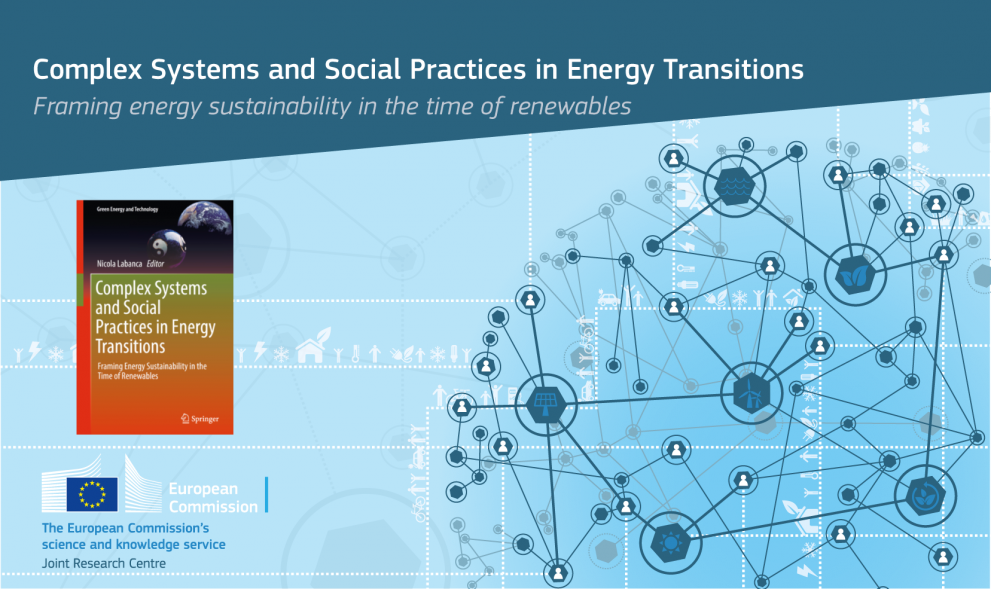
A recently published book on “Complex Systems and Social Practices in Energy Transitions”, edited and co-authored by JRC scientists, discusses how and why complex systems and social practice theories will necessarily have to be taken into account by researchers and policy makers dealing with the on-going transition to renewable energies.
The acknowledged scholars who have contributed to the 15 chapters of the book explain that their efforts to produce this publication are motivated by the fact that the attention of researchers and policy makers dealing with renewables and energy sustainability issues is nowadays mostly just focused either on stimulating technological substitution (e.g. substitution of energy inefficient refrigerators by more efficient ones) or on changing individuals’ behaviours around single technologies (e.g. by persuading to reduce hot water use, turn back thermostats and use carpooling).
The authors discuss why researchers and policy makers have to move their attention also to the energy, material, information and monetary flows circulating within the complex systems where persons and technologies are being progressively integrated. Energy and material resources that are not used or that are saved through efficient technologies and behaviors seem indeed to be increasingly and inevitably destined to serve as an input for additional activities (e.g. what is saved through efficient transport systems makes it possible to perform more journeys), according to a logic of consumption growth that can seriously obstacle a radical transition to renewables.
The authors also show how only focusing research and policies on technologies and individual behaviors inevitably prevents from addressing existing links between social practices (e.g. how societies organize mobility, food preparation and consumption) and energy consumption caused by human activities. Moreover, they explain how this approach impedes to identify fundamental obstacles that existing social practices can pose to the current energy transition. Overall, the book shows how complex systems and social practice theories can enable a larger scale shift towards renewable energies and provides relevant research and policy indications for stakeholders dealing with the current energy transition.
On 28th September, a JRC webinar will be dedicated to the presentation of this book. To participate in the webinar, please visit the dedicated page on the European Energy Efficiency Platform (E3P).
To enroll, please complete the online registration form before 28 September 2017.
To find out more about the book, and to browse authors bios and chapters abstracts, please visit its page on the E3P website.
Background
This book is the result of an interdisciplinary effort undertaken by a series of sociologists, physicists, engineers, economists, anthropologists, biologists, ecologists and policy analysts who participated or were involved in the discussions that took place during a round-table organized by the Joint Research Centre of the European Commission in February 2015. That gathering allowed discussing fundamental issues at stake with policies for energy sustainability that are largely neglected by stakeholders involved in policy making. The participating scholars decided hence to produce a publication that could hopefully serve to make the scientific community and policy makers more aware of the relevance of the analysis approaches proposed and of the insights that can be gained through their application.
Related Content
Details
- Publication date
- 11 September 2017
